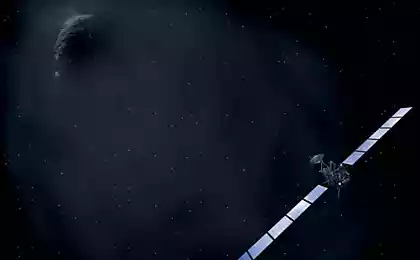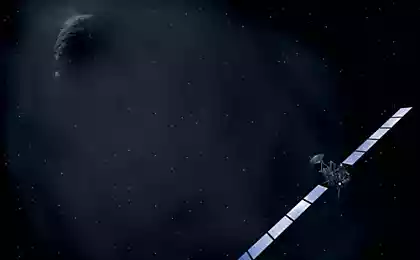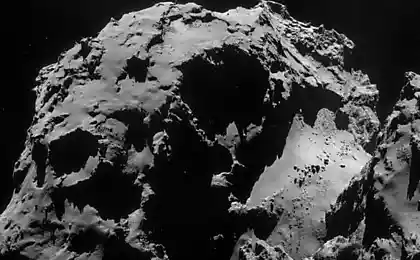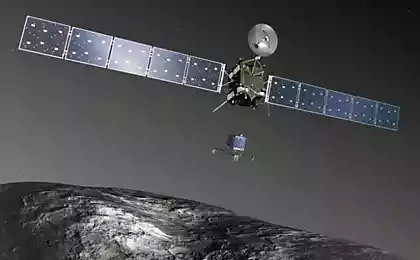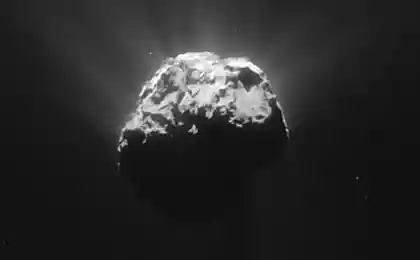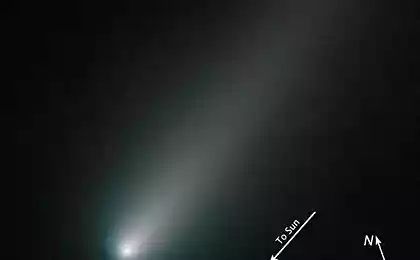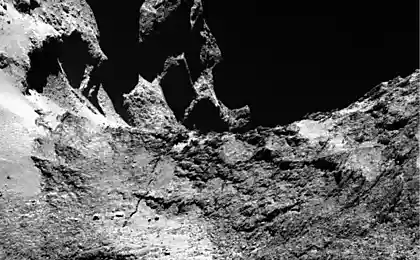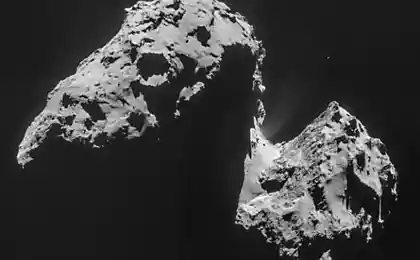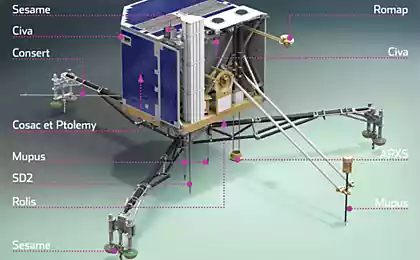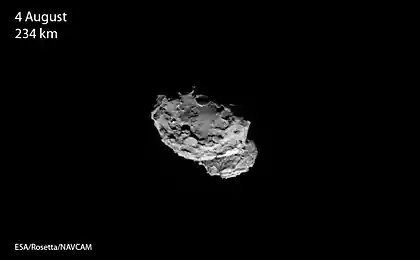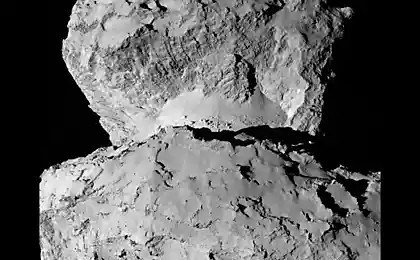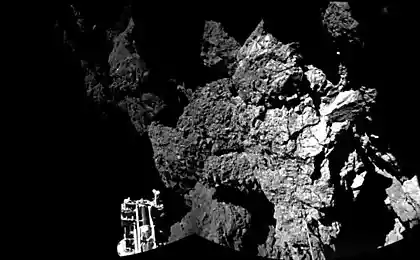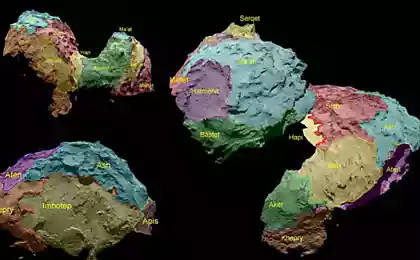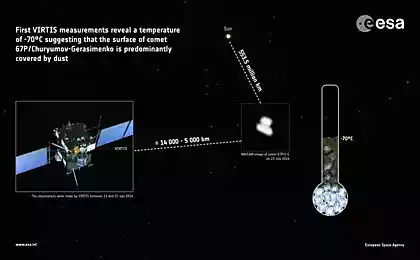725
Philae eighth time held a session with the Earth
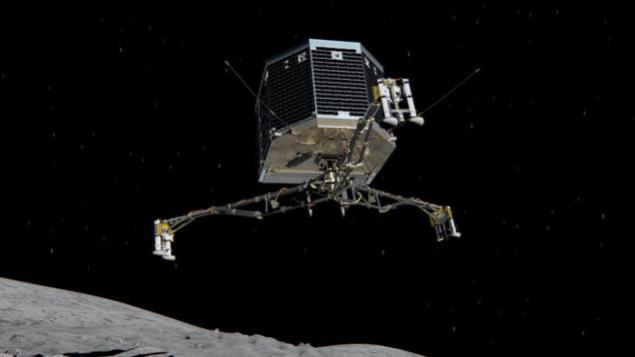
The probe Philae, which is now on the surface of the comet Churyumov-Gerasimenko, once again contacted Earth , used as an intermediate point of contact station Rosetta. Unfortunately, at this time Philae «talked" with a team of specialists in just a few minutes (12 minutes). In addition, before the probe was silent for about two weeks.
Nevertheless, the fact that the probe sends and receives data, is good news - for Philae continues. Recall that on June 13 the probe woke up the first time after he had gone into hibernation due to lack of energy. Probe on November 12 last year, he dropped to the surface of a comet, made several "hops", and stood in the shadow of "rock", which does not face the sun's rays.
After the energy reserves run out, went into hibernation. It was November 15, 2014. But now the comet comes closer to the sun, getting more and more sunlight and heat. With the approach of the comet to the Sun, Philae began to get more and more energy, and now this amount is enough to ensure the operation of all systems of practical devices.
June 13 Philae gave information about his condition. It turned out that there is no damage to the machine, it works fine. The temperature of the device is now -5ºC. "We can already say that all the subsystems of the probe are working properly, after about half a year, held on the frozen surface of the comet," - said the head of the Philae Lander Project Ulamek Stefan (Stephan Ulamec).
During the last communication with Earth zones transmitted data on the comet's nucleus, resulting tool CONSERT (COmet Nucleus Sounding Experiment by Radiowave Transmission).
As already mentioned, the probe binds to the ground through Rosetta, whose orbit, unfortunately, does not allow to hold regular sessions with the probe. Most likely, experts will lower orbit Rosetta, and change it so that the connection was more reliable. Too close to the comet is now dangerous, because the kernel is heated, releasing gas and dust flows into the surrounding space. One of these emissions may threaten Rosetta, if the station is too close to a comet.
Now the main task of the team Rosetta - liaise with a probe that can transmit a lot of useful information for science.
Source: geektimes.ru/post/253324/




